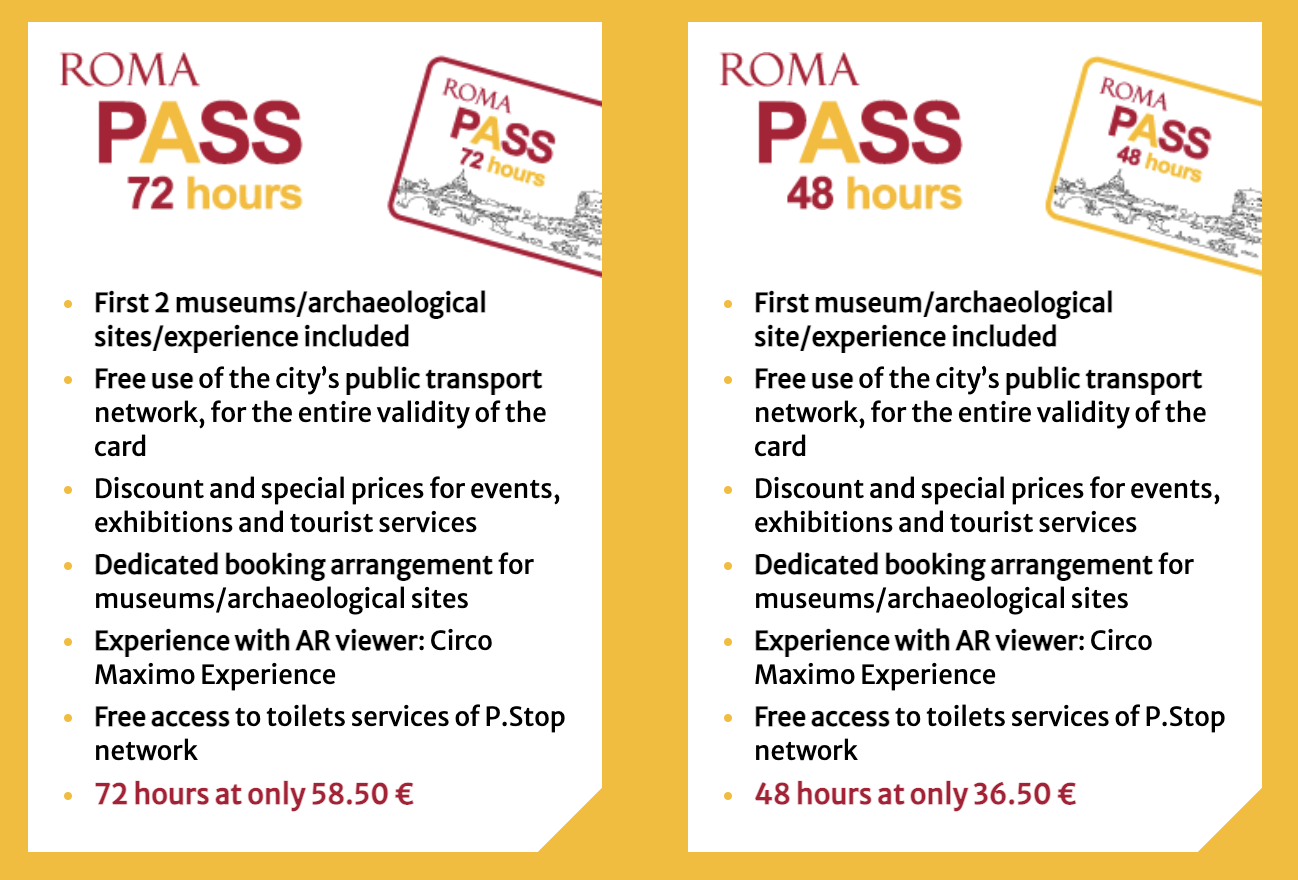Roma Pass

The Roma Pass is a tourist card designed to provide easier access to Rome's cultural and transportation services. It typically comes in two durations - 48 or 72 hours from first use.
Key benefits include free access to select museums and archaeological sites (usually one site for the 48-hour pass and two sites for the 72-hour pass), plus discounted entry to many additional attractions afterward. The passes include unlimited use of Rome's public transportation network, including buses, metro, and some local trains within Rome.
Another valuable feature is "skip-the-line" privileges at many participating sites, which can save significant time during peak tourist seasons. The pass also includes a map and informational materials about Rome's attractions.
Participating sites generally include many of Rome's major museums and archaeological attractions including the Ara Pacis Museum. However, it's worth noting that some of Rome's most famous sites, like Vatican Museums and St. Peter's Basilica, are not included as they are technically in Vatican City - but outside of the Vatican the Roma Pass can be a great deal, especially if you are a plan ahead type of person. Also, if you plan to use your Roma Pass for the COLOSSEO or GALLERIA BORGHESE, check availability first, as reservation times are are required to enter these attractions.
The pass begins working from its first use (either at a museum or on public transport), not from the purchase date, so visitors can buy it in advance without losing time. Most major tourist offices, participating museums, and some hotels in Rome sell the pass.
Comments:
Last update:
What's New?
-

Parking, ZTL, and Speed Cam Tips for Rome
Feb 23, 2026
-

Tips & Tricks for Visiting the Vatican in 2025
Apr 22, 2025
-

Experience The New Rome
Jan 28, 2025
-

History of The Ara Pacis Museum
Jan 6, 2025
Top experiences in and around Rome:
Some links to external websites may be affiliate links (hotel bookings, guide books, activities, etc.). Using these services helps to support our efforts here with no additional costs to the user (you!).

